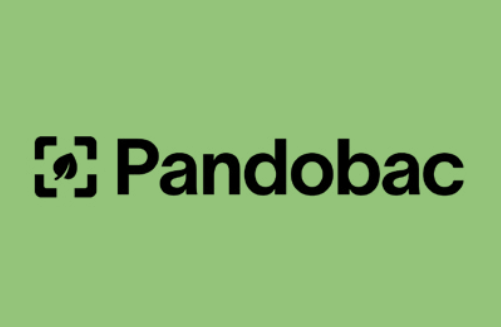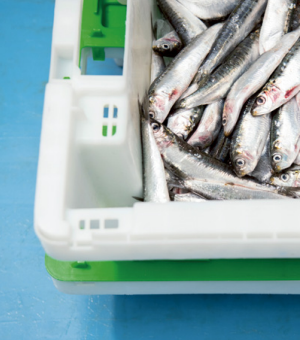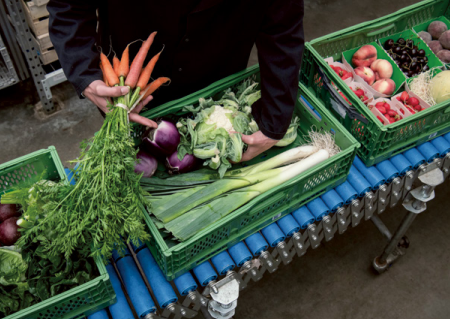Shu Zhang, Pandobac: Full speed ahead
After opening her restaurant Maguey in 2014, an original concept built around a “surprise” menu, Shu Zhang, an engineer in industrial and logistics engineering, quickly realized the lack of solutions when it came to packaging. That’s what led her to create Pandobac.
After opening her restaurant Maguey in 2014, an original concept built around a “surprise” menu, Shu Zhang, an engineer in industrial and logistics engineering, quickly realized the lack of solutions when it came to packaging. That’s what led her to create Pandobac.
After four years of running her restaurant, faced with the amount of waste it produced, Shu Zhang felt the need to have a more positive environmental and social impact. She began questioning the systematic use of single-use packaging in the foodservice industry. In conversations with her suppliers, she realized that no concrete solution had yet been developed. So she came up with an alternative: offering reusable packaging.
UNIQUE IDENTIFIER
Before launching the service in 2019, the team assessed the operational needs, particularly the traceability of crates — losing one increases both the environmental and financial impact. To determine the most suitable types of crates, the co-founders conducted a benchmarking process, drawing on models already used for fruit and vegetables or in the seafood sector, where polystyrene crates offer valuable insulating properties. Each crate is assigned a unique identifier, allowing Pandobac to track its movements and monitor stock levels. Every client receives a monthly report detailing the volume used, storage duration, location, and overall loss rate.
100,000
“I had my restaurant,” recalls Shu Zhang. “Naturally, my suppliers were the first people I approached. That’s how we landed our first fruit and vegetable client at Rungis.” Today, the crate fleet has reached 100,000 units, distributed among around fifty clients, half of whom are based in the Île-de-France region. The rest of the activity is concentrated in major industrial zones: southern France, the Lyon area, the east, and Brittany for the seafood sector.
TRANSGOURMET, STRONG PARTNERSHIP
The cooperation between Pandobac and Transgourmet began very early. “Even before the washing center was up and running. And when our activity started in 2019, our collaboration began with the seafood division,” explains Shu Zhang. She describes the partnership as “very strong, because they helped us get started by placing their trust in us right away.” Transgourmet has remained loyal to Pandobac and is now one of its largest clients, with several projects currently in development. One such test is underway via the Transgourmet Seafood facility at Rungis, involving the deployment of crates to the Transgourmet Ouest site in Carquefou, Loire-Atlantique. From there, the crates are delivered to clients across the greater Nantes region. This is a first for Pandobac. The company is now handling delivery between two Transgourmet entities, whereas previously it only managed flows between Transgourmet and its clients. With this new intermediary step, Pandobac can now expand its service from Rungis to other sites, and potentially to all Transgourmet locations across France.
Another major project: the upcoming opening of a new Transgourmet Seafood fish-cutting facility in Strasbourg. Pandobac will handle crate-based deliveries there from day one, for both whole and filleted fish.

ONE CRATE
A major project currently underway is the integration of Pandobac into Transgourmet’s ERP (Enterprise Resource Planning) system, a software tool used to manage all operational processes more efficiently. This marks a significant step forward, removing one of the main barriers to extending the reusable crate service to the entire “retail” segment. Transgourmet offers its clients a very specific, all-in-one service: all products delivered in a single drop-off. This requires mixed crates that group items from all product categories. “The idea is to allow a restaurant to receive, in a single crate, dairy, meat, hygiene products, vegetables, and dry goods, eliminating the need to work with multiple suppliers and saving a huge amount of time,” explains Shu Zhang.

AGEC
In 2018, when Pandobac was founded, the AGEC law (Anti-Waste Law for a Circular Economy) had not yet come into effect, and the transition to reuse was far from a given. Pandobac launched after conducting a full-scale test to assess interest in the service, both from restaurant owners and suppliers.
MEGA WASH STATION
Before Pandobac, there were no packaging wash stations at Rungis market, despite it being a crucial factor for optimizing logistics costs and staying close to suppliers. Pandobac built its own washing facility: a 150 m² area capable of processing 4,000 crates per day. Then, with a new, more water-efficient machine, the space expanded to 250 m² and the processing capacity was multiplied by five.

HOW IT WORKS
“We never start with 100% of a client’s volume. You don’t go from all-disposable to all-reusable overnight.” Implementation begins on a limited scope, with a gradual rollout plan. The client needs to be fully convinced before scaling up the solution.
By Christophe Jeanjoseph
Photos by DR